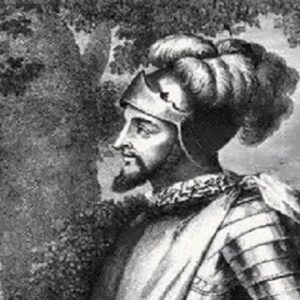Vasco Nunez de Balboa, a Spanish conquistador, and governor under the King of Spain, was one of the most important and prominent explorers of the 16th century. He discovered new territories that had remained unexplored despite countless journeys done before his time. Christopher Columbus, who had discovered the “New World” and resolved to become an explorer, influenced Balboa tremendously. Balboa first lived in Hispaniola after embarking on a voyage to the Americas, and he never returned to his own Spain during his lifetime, preferring to stay in his new home in order to search for the legendary riches that could be discovered in the continent’s uncharted areas. Vasco Nunez de Balboa went on to discover new areas and was appointed governor of various American regions. One of his most significant accomplishments was crossing the southern section of the continent via the present-day Isthmus of Panama. He was the first European to traverse the Pacific Ocean, and it is also worth noting that Vasco Nunez de Balboa was the first European to introduce Europeans to the Pacific Ocean.
Childhood and Adolescence
Vasco Nunez de Balboa was born at Jerez de los Cabellaros, Spain, to Nuno Arias de Balboa, a lord, and Lady de Badajoz. His actual date of birth is uncertain, however, 1475 is thought to be the year of his birth.
Vasco Nunez de Balboa’s childhood is steeped in mystery, and nothing is known about his early years. He did, however, serve as the squire of Don Pedro de Portocarrero, Lord of Moguer, at some point in his early life.
After hearing about Christopher Columbus’ accomplishments, Balboa chose to join Juan de la Cosa on an expedition to the Americas led by Rodrigo de Bastidas in the year 1500.
Balboa stayed in Hispaniola after the mission ended and tried his hand at pig farming with the money he had earned from the journey, but his ventures failed.
Vasco Nunez de Balboa’s career as a pig farmer had failed on Hispaniola, and he decided to flee the island to avoid all of his creditors owing to mounting debts.
In the year 1510, he stowed away on a voyage to the coastal areas of Uraba, which was then under the authority of Alonso de Odeja. The journey, which was intended to save the local residents, proved to be a pivotal moment in his career as an explorer.
Balboa’s knowledge of the area proved invaluable to those in charge of the expedition to Uraba, and the colony’s settlers were discovered once they arrived.
Balboa was the one who suggested that the settlers be relocated from Uraba to Darien, which is now known as the Isthmus of Panama. In 1510, the city of Santa Maria la Antigua del Darien was created.
Balboa rose to prominence and influence in the wake of Alonso de Odeja, the founder of the Uraba settlement, leaving a power vacuum among the inhabitants who had fled to Darien.
In 1511, King Ferdinand II of Spain appointed him as the ruler of Darien, albeit only briefly. Balboa outmaneuvered the Governor of Veragua and usurped his office the next year.
When Vasco Nunez de Balboa learned about a gold-rich area in 1513, he swiftly enlisted the help of Hispaniolans to take the territory.
He also wrote to the King of Spain, but his requests for men were turned down at his enemies’ request. The mission came to a halt near the Chucunaque River, and Balboa’s only claim to fame was the discovery of the ‘South Sea,’ or the Pacific Ocean, which was unknown to Europeans at the time.
Balboa seized the lands in the surrounding areas after discovering the South Sea and returned to Santa Maria in early 1514. Balboa was appointed governor of Panama, Coiba, and Mar del Sur as a result of his achievements.
Balboa’s relationship with the nobleman Pedrarias, whom the King of Spain had despatched, was strained, and his career came to an end after he lost a power battle.
His major Achievements
The discovery of the South Sea and the introduction of Europe to the Pacific Ocean is without a doubt Vasco Nunez de Balboa’s most important achievement.
Personal History and Legacy
Vasco Nunez de Balboa was betrothed to Maria de Penalosa as part of a matrimonial partnership, but the couple never married because Balboa never returned to Spain. He didn’t have any children.
Balboa was accused of treason after a protracted rivalry with Pedrarias and after falling out of favor with the powers that be; he was sentenced to death in a trial that was far from fair. In the month of January 1519, Balboa was decapitated.
Estimated Net worth
Unknown.


